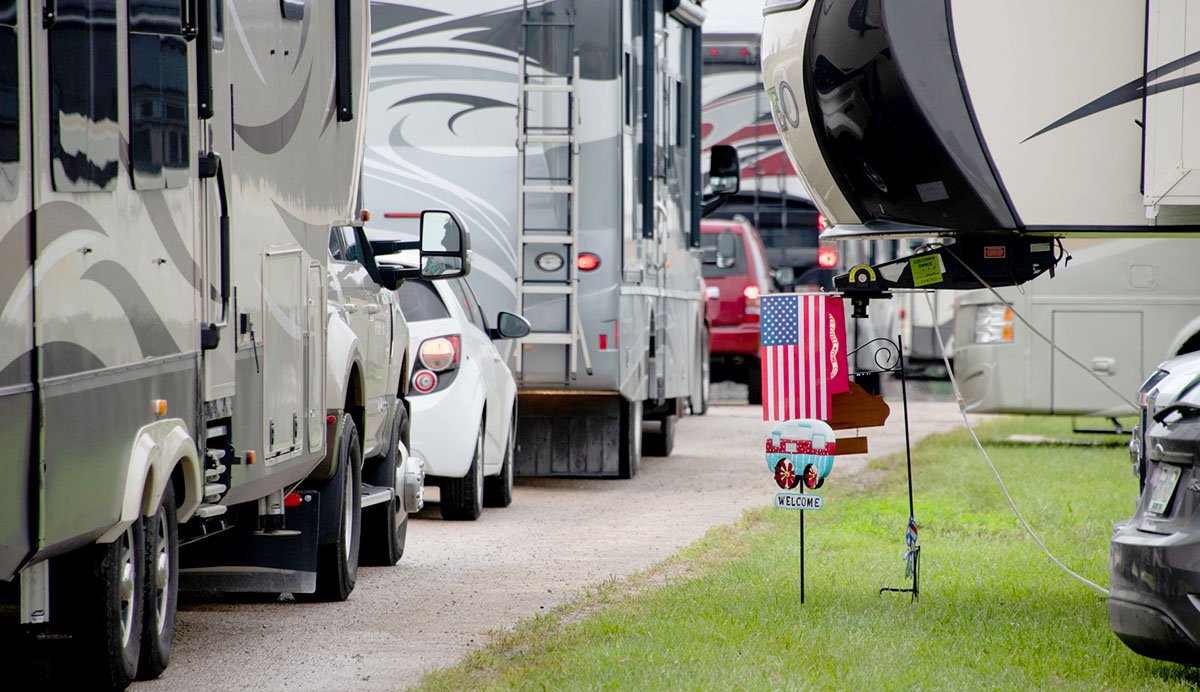
There are many different types of RVs and some of the classifications can be a bit confusing. This guide will help you understand the differences between RVs like the difference between Class A, Class B, and Class C and others.
This guide is broken up into 2 main categories. Motorized RVs that have their own engine and do not require a tow vehicle and non-motorized RVs that require a tow vehicle to move them from place to place.
Table of Contents
Motorized RV Types
Table of Contents
Bus Conversions
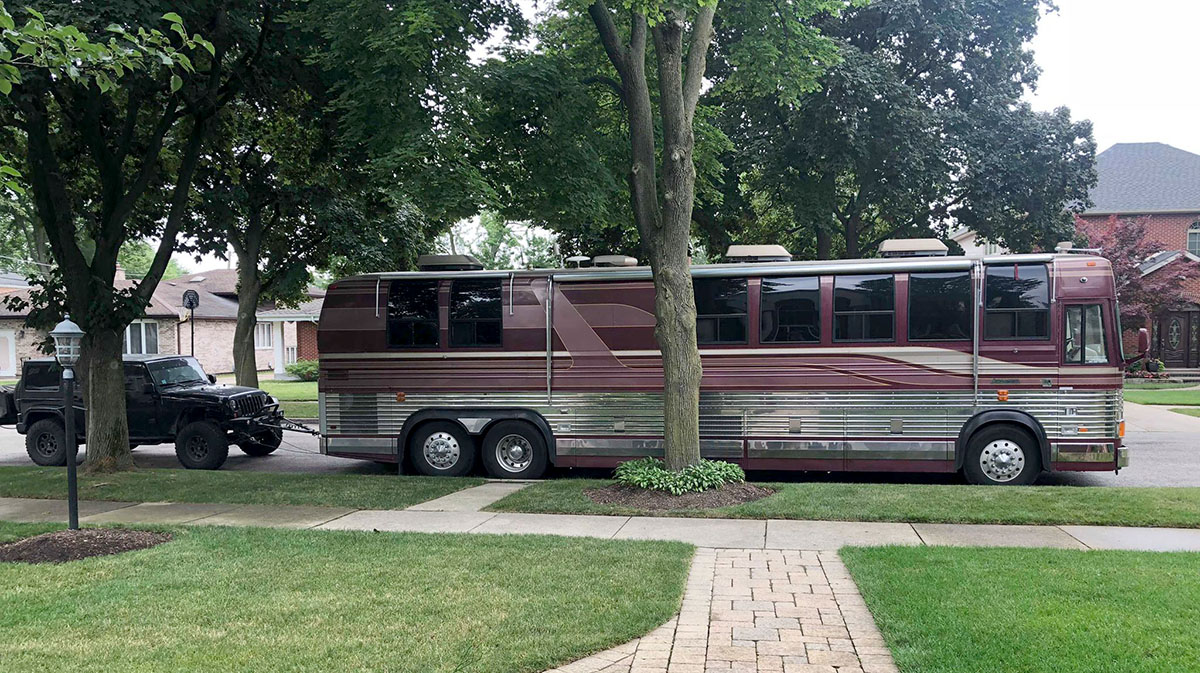
Bus conversions can run a wide range from DIY conversions of vintage passenger or school buses to professional multi-million dollar conversion with every bell and whistle available.
The main distinguishing factor is that bus conversions are built from heavy duty bus chassis that are designed to carry a lot of weight over many, many miles.
Fans of bus conversions usually refer to the exterior metal construction of the bus as superior to the fiberglass construction of most Class A motorhomes.
Most bus conversions do not have slide out rooms like a Class A might, but some high end options will add slides.
School bus conversions are popular and relatively inexpensive to get started with. It can be difficult to find insurance on a DIY conversion. Many insurers will only write more costly commercial insurance plans for DIY bus conversions.
Pros
- Heavy duty bus construction will last much longer than other types
- Usually equipped with a very powerful engine that provides plenty of power in all situations
- Can have very large external storage bays
Cons
- Vintage buses can require specialists to work on the engine and electrical systems
- Very expensive to buy new
- Can be time consuming and costly to convert a bus yourself
- Insurance companies may require you to carry commercial insurance if the conversion was not done professionally
Class A Motorhome
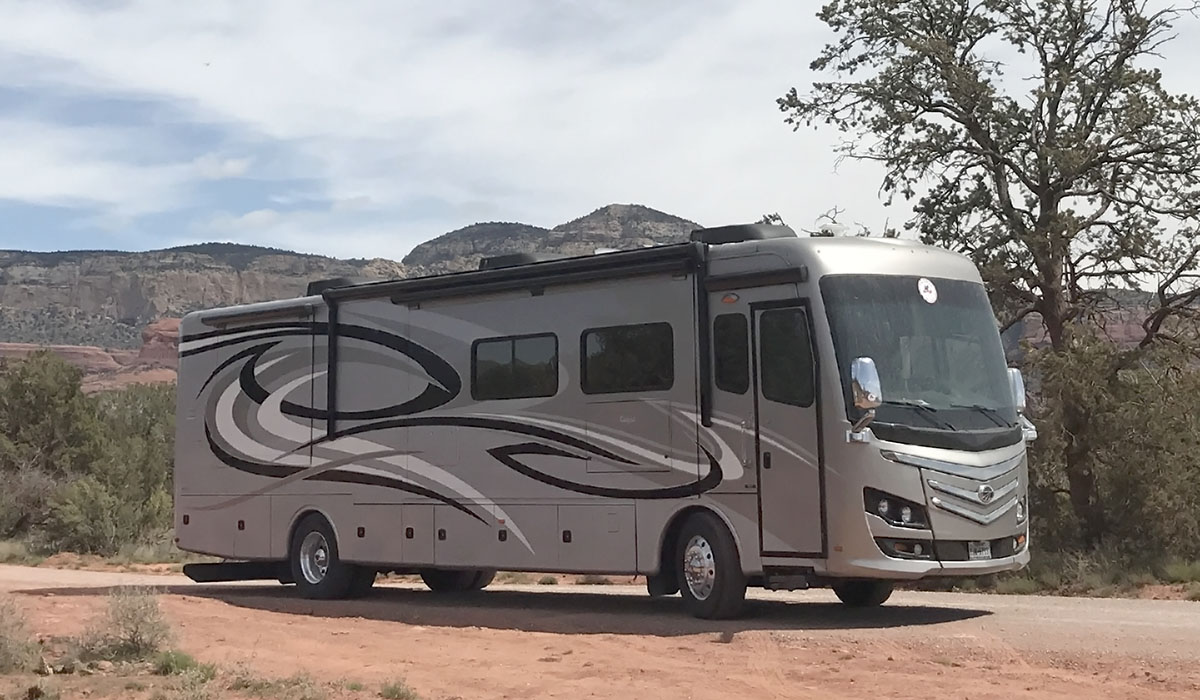
Class A motorhomes are built on a chassis that is specifically designed for motorhomes. The chassis is supplied bare from the chassis factory and then the motorhome builder builds the complete living area, driving area and storage bays.
Class A motorhomes are available with diesel and gas engines. Typically diesel class As have their engines in the rear which keeps the noise of the engine far away from the driver and passenger and makes for a nice, quiet cockpit. There are some diesel class As that have front engines.
Gas class As have the engine in the front which can add some noise to the cockpit, but makes for a much less expensive class A motorhome.
Due to the size of class A motorhomes, most long-term users will choose to tow a vehicle behind for exploring and driving around town. A vehicle towed behind a motorhome is often referred to as a “toad”.
Class A motorhomes are beneficial if you travel frequently. Usually they will have automatic leveling jacks and onboard generators standard. This makes it easy to quickly level the RV in a new site, and the onboard generator can provide power to the RV when you aren’t connected at an RV park.
Class A Motorhomes range from around 26ft to 45ft in length.
Pros
- Lots of Cargo Storage Space
- Large range of options and prices
- Raised driver position and large windshield give a good view of the road
- Driving and living areas connected making it easy to access the amenities while traveling
Cons
- Can be intimidating to drive on smaller roads
- Low fuel economy
- Higher insurance costs than other RV classes
- Tall height - low branches, bridges, etc could be an issue
Class B Motorhome
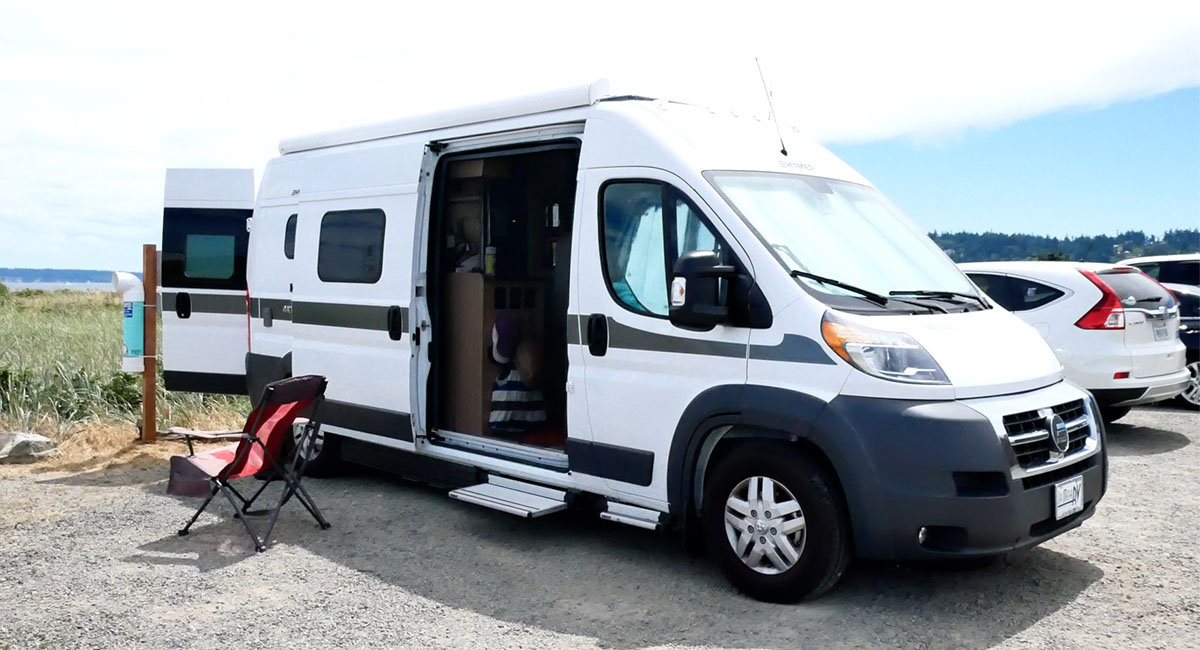
Class B motorhomes are supplied to the RV manufacturer as a van shell. Then the manufacturer builds out the interior of the van to provide full amenities including a kitchen and bathroom. Some Class B manufacturers choose to raise the roof of the van, or widen the van to provide more interior living space.
There is a wide range of pricing in Class B motorhomes. Some can be fairly inexpensive while other models can cost as much as a gas Class A motorhome.
The main advantage to a class B is its size. It is much easier to park in smaller spaces at a campground as well as park it on city streets. Due to its small size it is easy to use a Class B as your daily driver for visiting towns and exploring.
This type of RV is great for 1 or 2 people.
Class B+ is a term used to describe what is often a van front that is cutaway and has added space to the living area. It is smaller than the below class C often with no sleeping bunk and falls between the B and C.
Pros
- Small size means more campground spot choices
- Easy to park on city streets
- Van is easy to drive and maneuver as a daily driver
- Driving and living areas are connected making it easy to access the amenities while traveling
Cons
- Smaller size means less storage space
- Less exterior storage space
- Small interior living space
Class C Motorhome
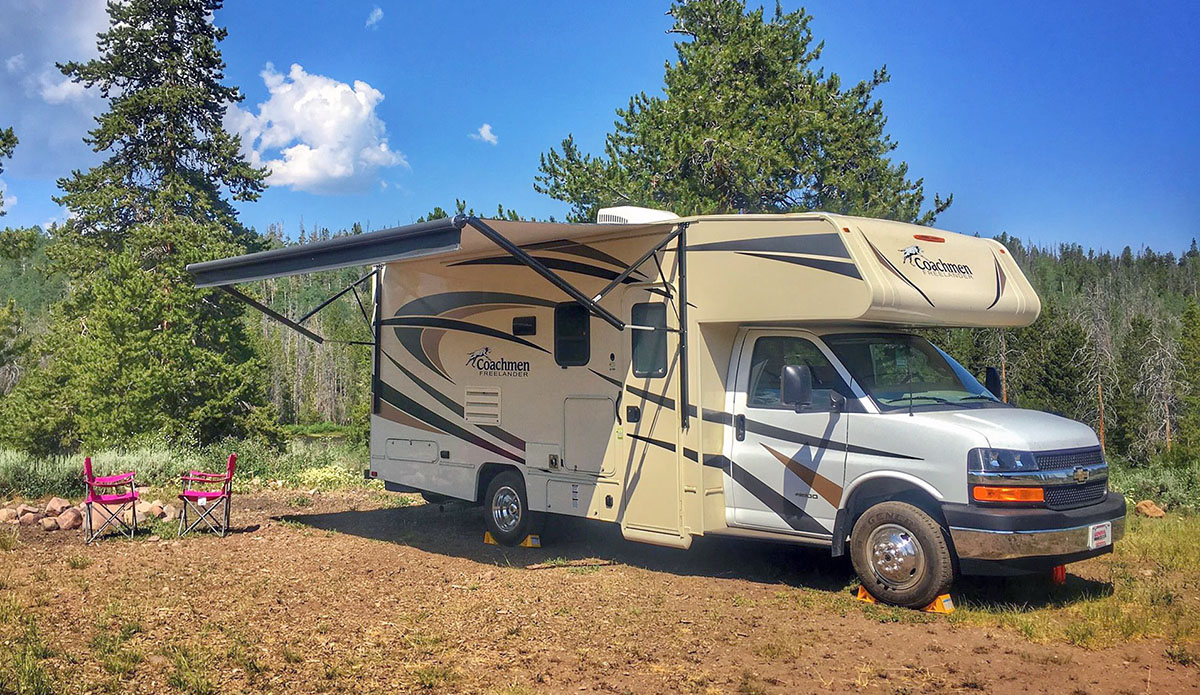
Class C motorhomes are supplied to the motorhome factory as a van or truck front with a bare chassis. These are recognizable because they still have the van or truck front-end along with driver and passenger doors. The motorhome builder then constructs the rear living quarters onto the chassis. Class C motorhomes will often have a bunk that extends over the driving compartment. Class C motorhomes usually offer the same features as a Class A motorhome at a lower price.
These motorhomes appeal to more budget conscious consumers that are looking to get on the road without spending too much.
Because Class C motorhomes are often built on less heavy-duty van chassis, they can have limited cargo carrying weight capacity. This is important to watch out for when shopping.
Pros
- Driving compartment feels more like a normal vehicle
- Driving compartment is usually connected to passenger compartment and can be accessed while traveling
- Lower purchase price than other motorhome classes
Cons
- Often has lower cargo carrying capacity by weight than a class A
- Still fairly tall and wide and may be intimidating to some drivers
- Construction is usually lighter duty in order to keep the weight and cost down
Super Cs
An exception in the category of Class C motorhomes are Super Cs. This is the term for a Class C style construction but instead of using a passenger van as a base, a large heavy-duty diesel truck is used as a base. Super Cs are popular with those that need to tow a lot of weight. These are frequently used to tow heavy trailers with race cars in them or heavy horse trailers. Super Cs can be very luxurious inside and very expensive, but they can tow 10,000 to 40,000 pounds.
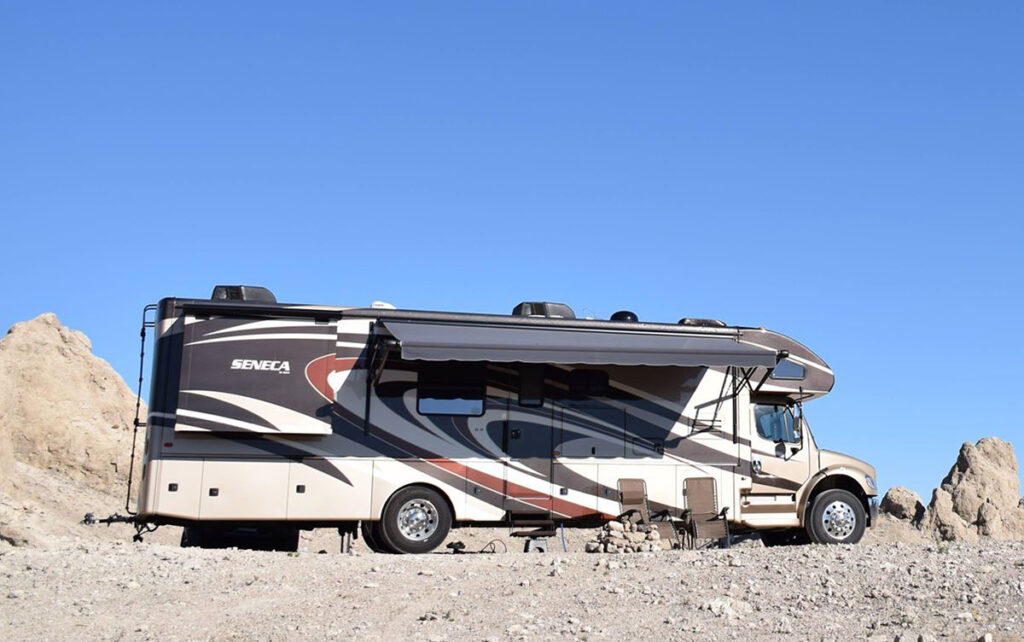
Van Conversions and Camper Vans
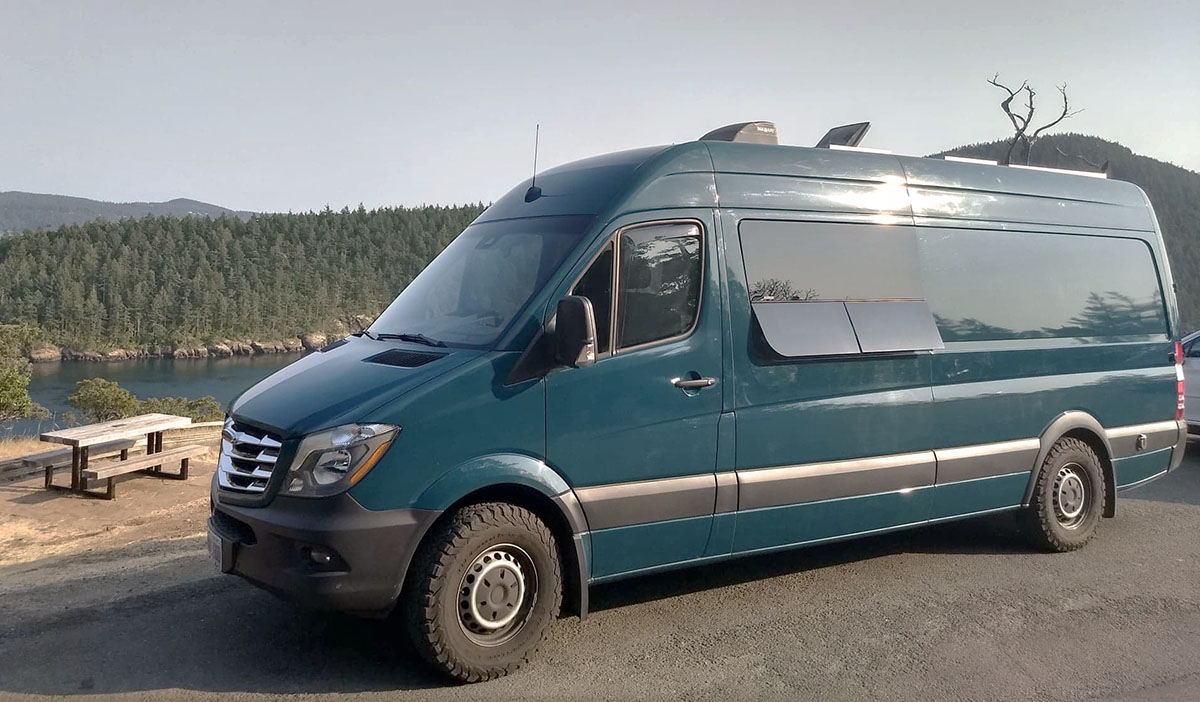
Van conversions and camper vans can blur the lines with Class B motorhomes. For our purposes, we will classify van conversions as vans that were sold fully assembled as cargo or passenger vans and then were converted by the user or a professional to provide living space for camping.
Van conversions can run from very simple DIY options to high-end conversions. Typically, van conversions will be smaller than class Bs and may have less amenities. Many may forgo the inclusion of a bathroom in order to keep the van smaller and maximize the functionality of the interior space.
Because van conversions and camper vans are smaller, they drive much like the original van so they can be very easy to handle day to day. Often van conversions do not look like RVs so it is easy to park them on city streets and not stand out.
Van conversions and camper vans will have very small storage spaces compared to other RV styles and are best suited to those living a minimal lifestyle.
Some van conversions are built on 4-wheel drive vans. Four-wheel drive combined with the small size of the van can allow you to camp far off the beaten path.
Pros
- Small size is easy to maneuver
- Can be inexpensive to get started if you do the conversion yourself
- Do not always stand out as an RV
- Can be parked anywhere a car can park
Cons
- Often does not include a bathroom
- Small interior space and storage
Non-Motorized RV Types
Fifth Wheel - aka Fiver
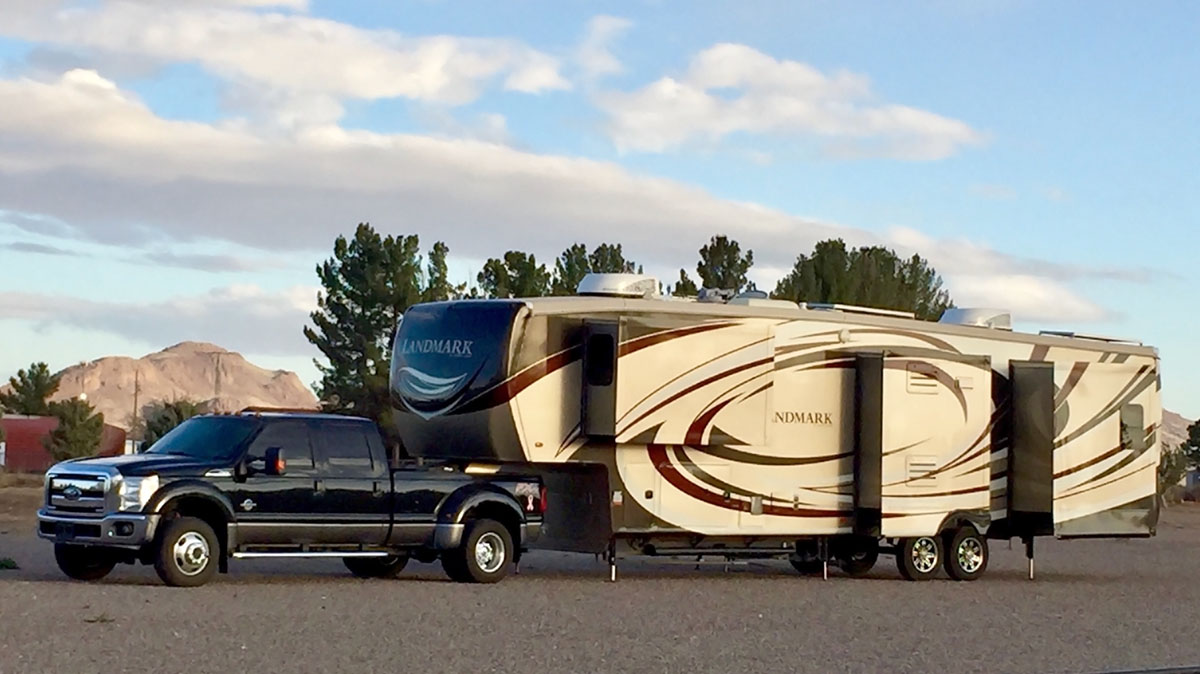
A fifth wheel trailer is the largest kind of trailer RV you can purchase. Fifth wheel trailers are recognizable by the hitch that connects into the bed of a truck rather than at the bumper. This allows the rear axle of the truck to carry more weight and gives a more secure feeling ride.
As with all non-motorized RVs, the lack of a driving area means that RV designers have more freedom to offer a wider variety of floor plans. Fifth wheels are the most residential feeling of all RVs. They typically have high ceilings in the living room, can often have an island in the kitchen and have a generous living room space. Typically fifth wheels have the bedroom in the raised area over the truck bed, but may also have the living room in this area.
Because fifth wheels take a little longer to set up and tear down and some features aren’t accessible when the slides are in, they are more favorable if you are doing longer stays in each location.
Families with kids often like fifth wheels because they give them plenty of space to spread out, and there many floor plan options from which to choose.
Pros
- Most residential feeling
- Lots of interior space
- Less expensive to own and operate than a motorhome
- Many people feel safer driving a pick up over a motorhome because of the higher quality construction, air bags and other safety features that are found in passenger vehicles but not in motorhomes.
Cons
- Requires a large pickup or heavy duty truck to tow them - often owners need a bigger truck than they expect
- Sometimes interior features like the refrigerator or bathroom are not accessible with the slides in
- Tall height - low branches, bridges, etc could be an issue
Travel Trailer - aka Bumper Pull
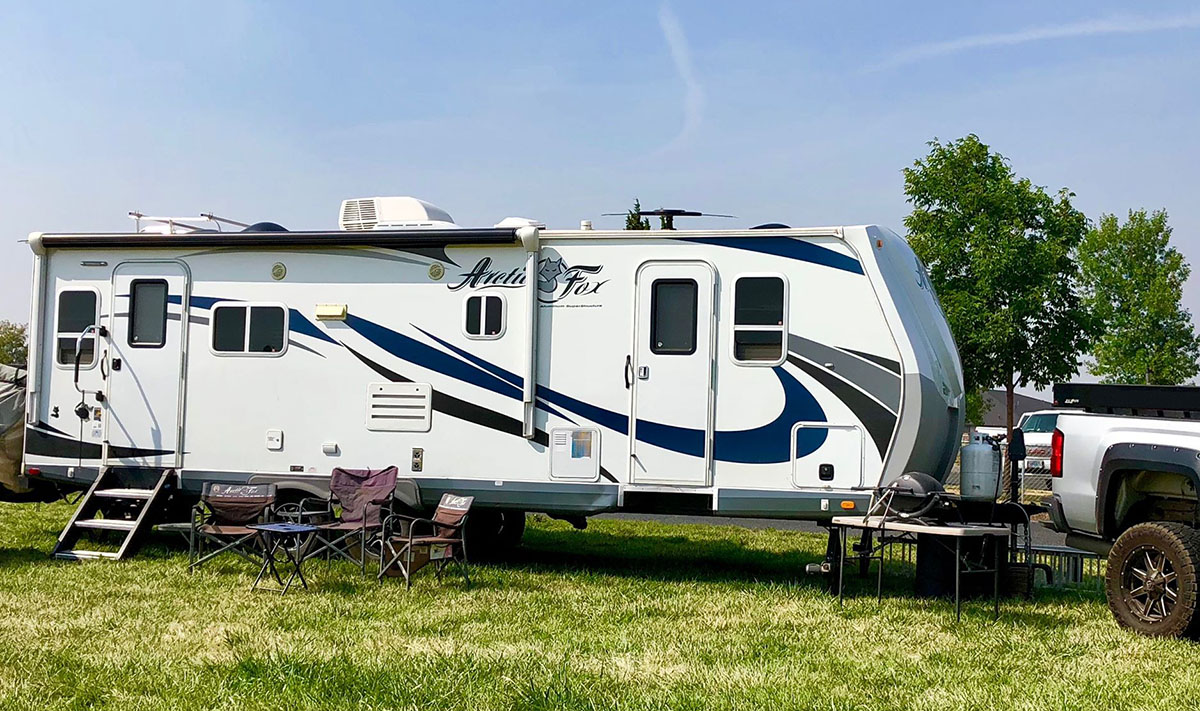
Travel trailers have a huge range of sizes that go from ultralight travel trailers that can be pulled by almost any car to very long travel trailers that require a large pick up truck to pull them.
Travel trailers connect to a hitch mounted at the rear of the car/truck. Because the trailer does not overlap the truck like a fifth wheel does, a similar length travel trailer will be longer overall than a fifth wheel when connected to the truck. This can make backing in long travel trailers more difficult.
Travel trailers are usually lower priced than motorhome and fifthwheels. They also have lower overhead clearance and can get into more places than a fifth wheel or class A motorhome.
Due to the lower overhead clearance, travel trailers usually do not have much external storage space. Many travel trailer owners use the bed and cab of their truck as their external storage space to overcome this issue.
Pros
- Less expensive for their size
- Low overhead clearance
- Low cost to operate and maintain
- Many sizes, floorplans, and quality levels from which to choose
Cons
- A 30ft travel trailer connected to a truck will be much longer than a 30ft fifth wheel connected to a truck – this can make backing in more difficult
- Lack of outside storage compartments
- Often not as well insulated as larger RVs
Hybrid Trailer
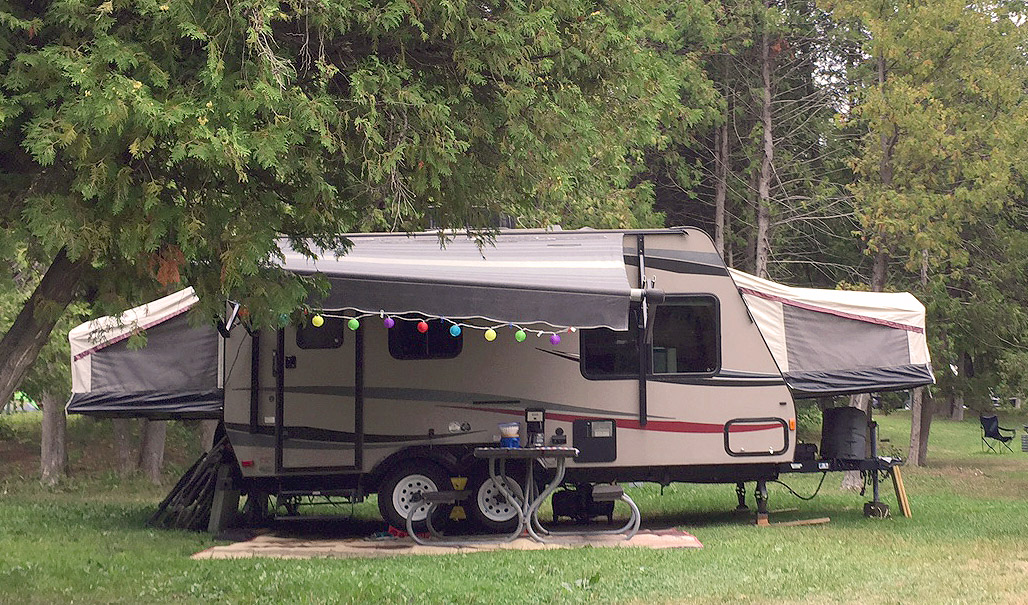
Hybrid travel trailers combine a small travel trailer with the bed design of a pop-up camper in order to make a smaller travel trailer with full amenities that can open up to provide more interior space and sleeping areas. This is beneficial to those that do not have a large truck to pull a heavy trailer but are looking for more space.
The design also allows full access to the interior amenities while traveling where a pop-up trailer does not. Some also prefer the bed design of a hybrid travel trailer because the tent design feels more like “real” camping.
A hybrid travel trailer allows the manufacturer to provide more interior amenities over a pop-up like a larger kitchen or bathroom while still keeping the overall weight of the trailer down.
The downside of a hybrid trailer is that the exposed beds can be hot or cold depending on the outside temperature. Also the lightweight nature of the mattresses on the fold up beds are not very comfortable for some users.
Pros
- More sleeping area in a smaller trailer
- Offers more amenities over a pop-up travel trailer
- Low cost to operate and maintain
- Can be towed by a wider range of vehicles over a similar size travel trailer
Cons
- Sleeping area is exposed to the elements - could be cold or hot depending on the weather
- Takes slighty longer to set up than a travel trailer
- Usually constructed from lightweight materials which may not hold up well over time
Pop-Up Camper / Tent Camper
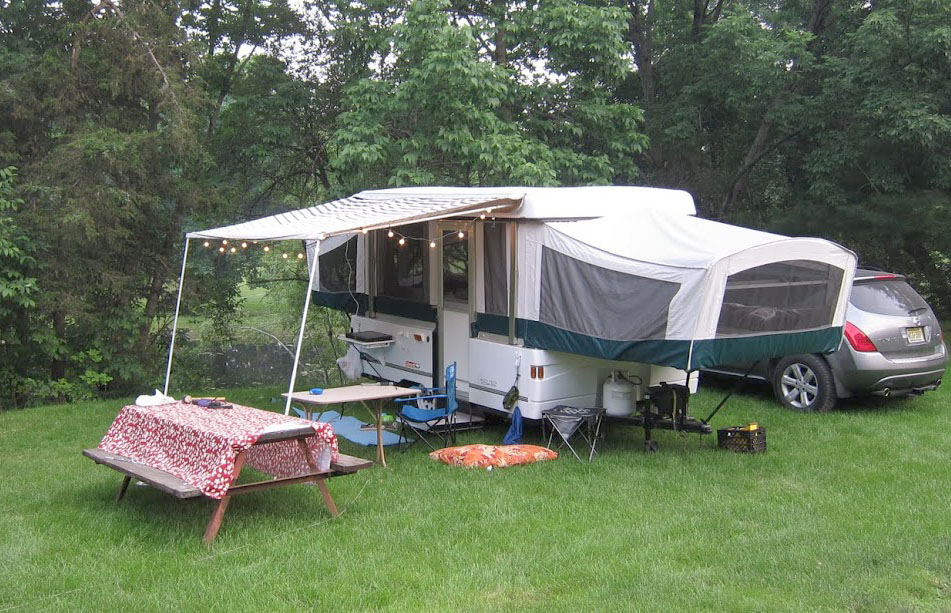
This style of RV is very popular with those just starting out RVing. They are lightweight and can be towed by a wide range of vehicles. Because they close up for travel, they do not create as much drag on the tow vehicle as a larger travel trailer.
When opened a pop-up camper can provide a lot of interior space and sleeping options.
Pop-up campers range in size from small models that can be towed behind a motorcycle to large models with simple slide outs, bathrooms and air conditioning.
Pros
- Light weight and easy to tow
- Lots of interior space for their size
- Open and natural feeling more like tent camping
- Very inexpensive way to get started
Cons
- Tent material is a poor insulator and they can get hot or pretty cold inside
- Many do not include bathrooms or waste holding tanks
- Soft sides and construction do not provide much security
Truck Camper
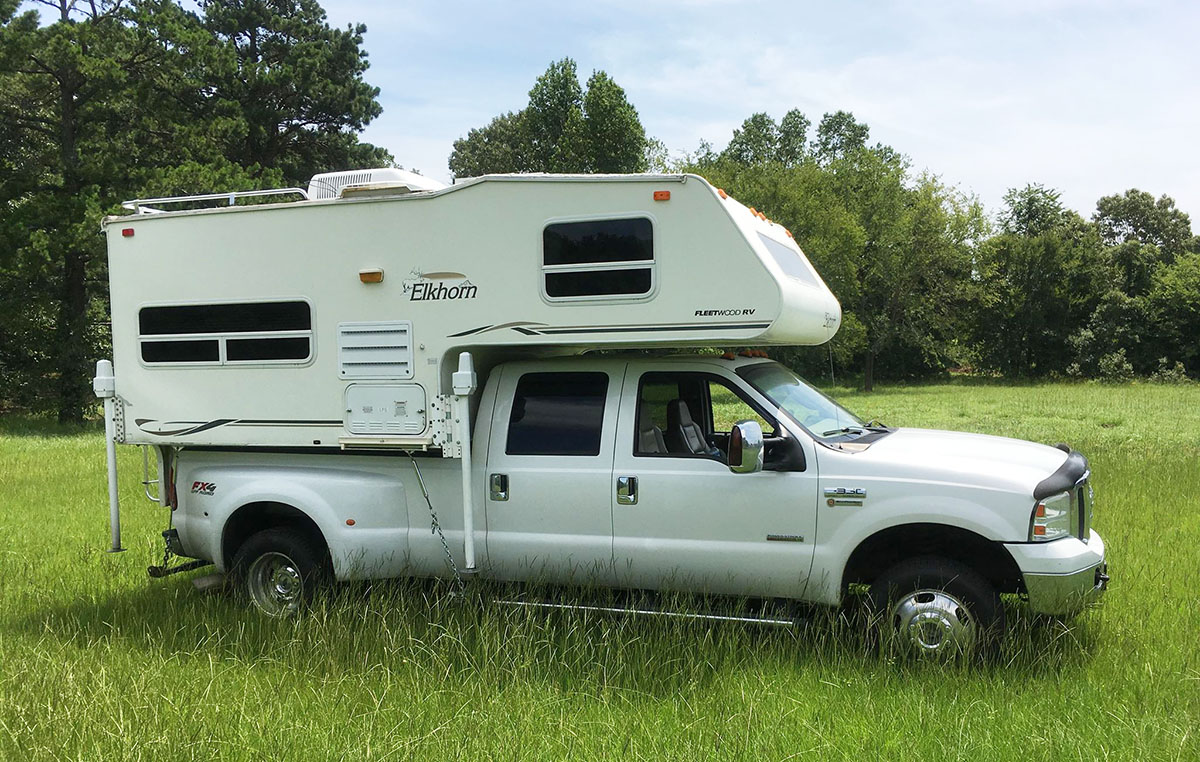
A truck camper is designed to slide into the bed of a pickup truck and essentially turns the pickup truck into a motorized RV. Some extreme models of truck campers will replace the bed of the truck completely.
Truck campers range in size from small pop-up models that are lightweight and low profile to large models with slides in them that rival the interior space of a class C motorhome.
Lightweight and low profile truck campers can allow the user to get far off the beaten path and set up camp anywhere they can get their truck.
Larger models allow the user to pack a lot of comfort into a small space at a relatively low cost compared to other options if they already own the truck.
Because of the weight of some of the largest truck campers, you may need the same size pickup truck that you would need to pull a fifthwheel trailer to handle the weight of the camper in the bed of the truck.
Pros
- Compact “motorized” RV
- Can get more places than larger motorized RV models
- Can be removed when not needed to free-up the use of the truck
Cons
- Large models can get very heavy and will need a large truck
- Not practical to remove the truck camper at a campground so you’ll have to take it with you if you go out exploring.
- Some smaller models do not have bathrooms
Tear Drop Camper
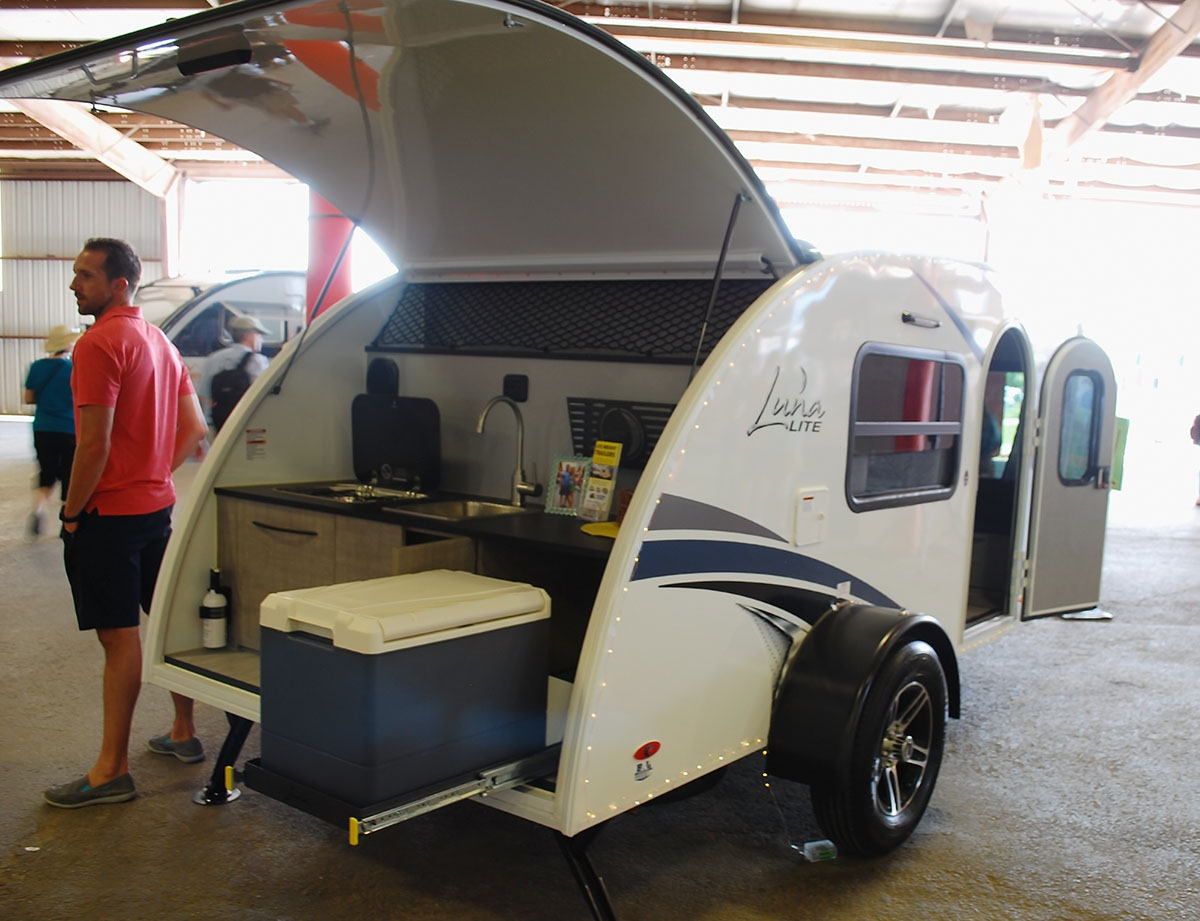
This style of travel trailer is noticeable by its tear drop shape. These became very popular after WW2. Plans were available that allowed you to build one yourself on an existing cargo trailer and many people still choose to do this today.
The size of tear drop trailers ranges form small trailers that are nothing more than a bed inside, to larger ones that provide enough room to stand up inside. The traditional teardrop trailer provides a hard-shell interior space for the bed and an outdoor kitchen space at the rear.
A major advantage of tear drop trailers is that they can be towed by most vehicles.
Pros
- Light weight and easy to tow
- Inexpensive to buy, operate and maintain
- Simple RV living
Cons
- Interior space is often just a bed
- Kitchen is outside so could be hard to use in bad weather
- Often, there is no bathroom
Toy Haulers
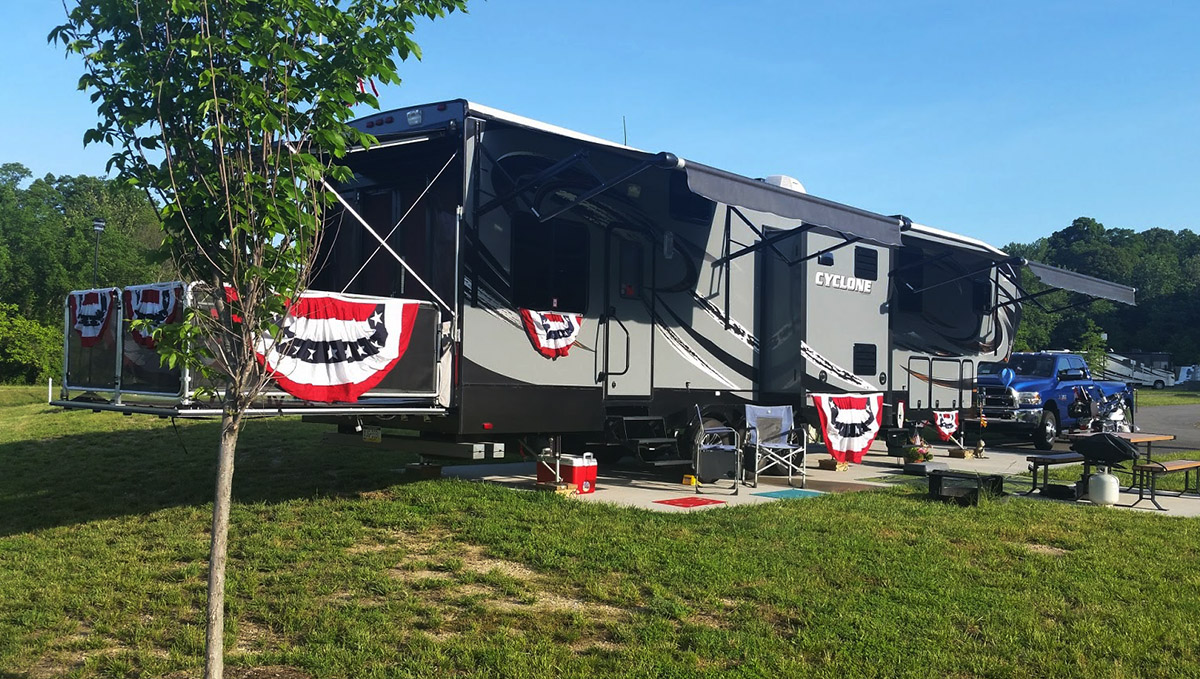
A toy hauler is an RV with a garage built-in to carry “toys” like motorcycles, ATVs, and golf carts. Toy haulers are available in most RV styles. There are class A, class C, fifth wheel, and travel trailer toy haulers.
The most common types are the fifth wheel and travel trailer toy haulers.
Typically, a toy hauler has a ramp at the rear or side for loading and unloading toys. The size of the garage area varies from a space only large enough to fit a single motorcycle to a space large enough for multiple motorcycles or ATVs. The garage space is usually more utilitarian and durable, so that dirty gear doesn’t hurt it. Often the garage space will have extra seating or a bed that folds down from the walls or drops down from the ceiling when the toys are out of the garage. They may also have the ability to turn the ramp into a deck with railing to provide an elevated place to sit at your campsite.
Some full-timers that work from the road choose toy haulers to create an office space in the rear.
Are you ready to buy your dream RV?
Have you thought about trying a used one?
Bottom Line
At the end of the day, each of these RV styles works for their owner in different ways. There is not one type of RV that is “better” than others and many RV owners may move from one kind of RV to another as their travel style changes.
They'll all get you out there so you can start enjoying this RV life!
Here’s a handy infographic to help you keep the different types of RVs straight while you search for your next RV.

Author
Brandon Hatcher
Brandon & his wife Kerensa hit the road in January of 2014 and haven’t looked back. After years of moving for jobs, they decided to go where they wanted and take the jobs with them. They left with their two dogs and cat in a motorhome to explore the country after an extensive research and planning period. He joined the Escapees team as Branding Director.

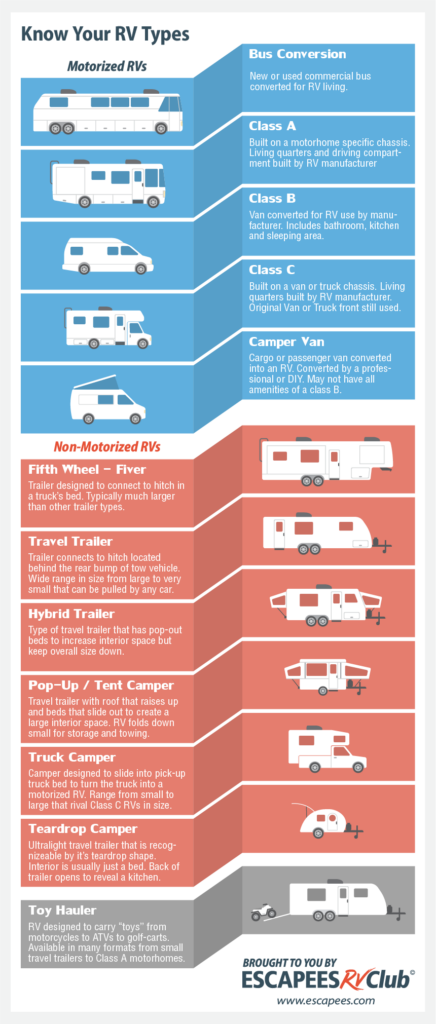
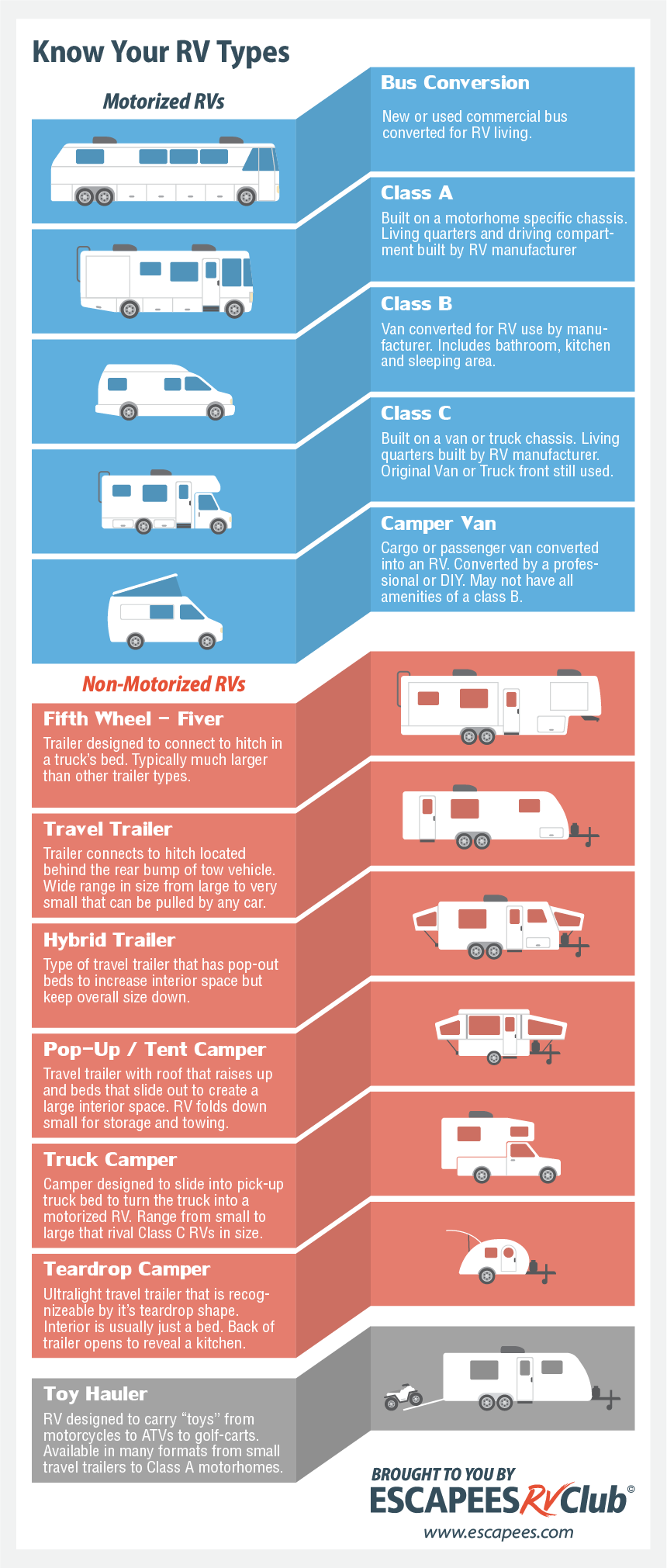
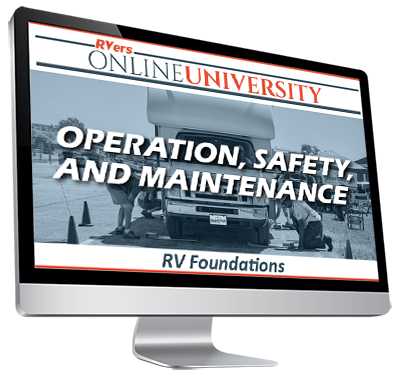



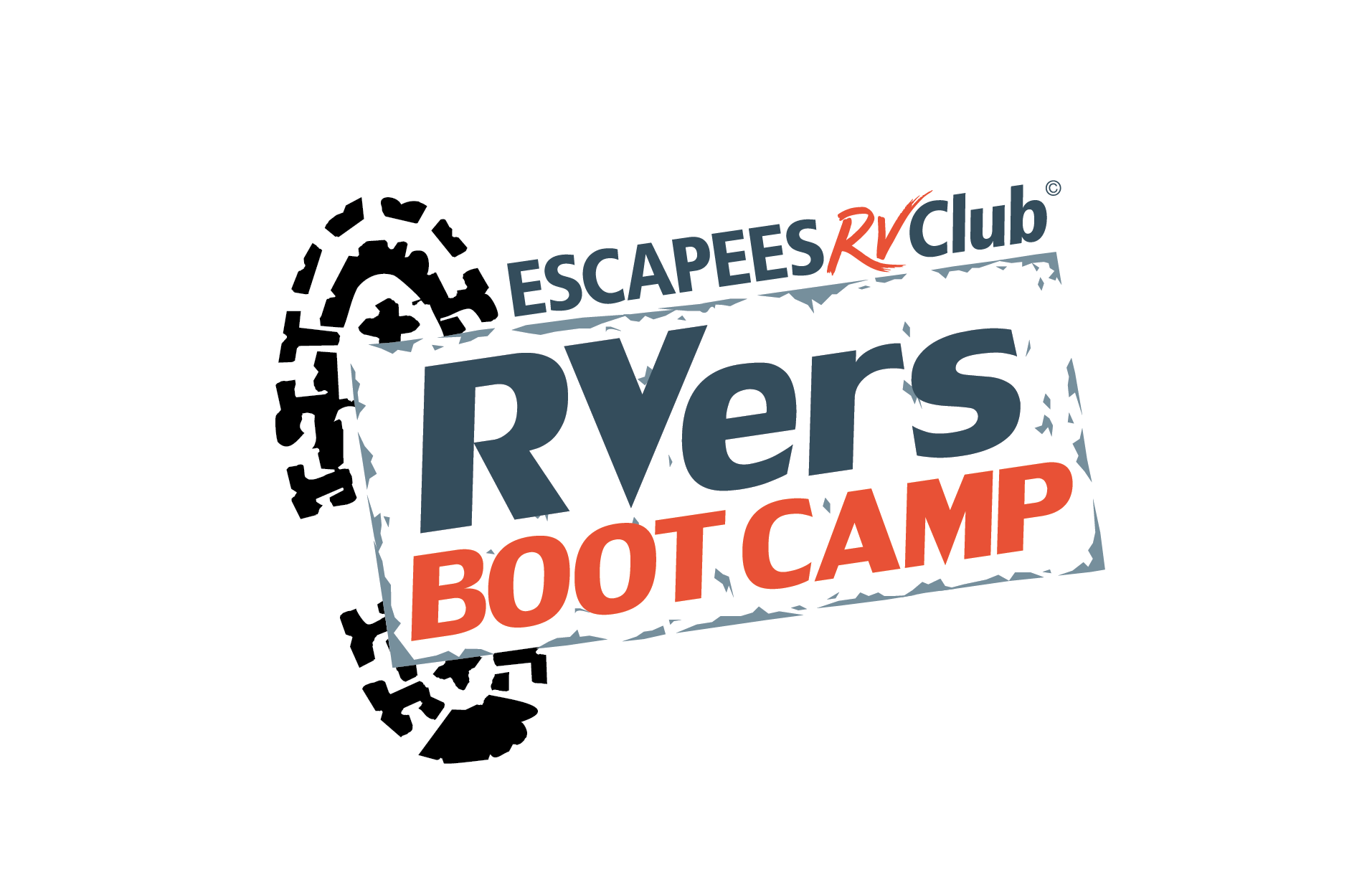


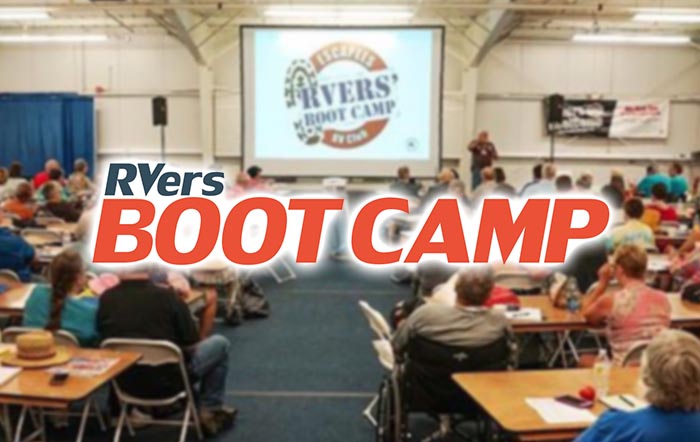
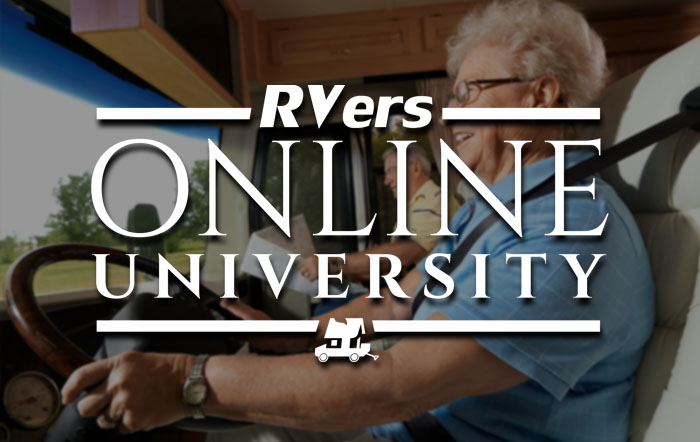

9 Responses
There are two types of Toy Haulers. One has independent garage from living spaces as in Class A and Class C (example: Outlaw) and most 5th Wheel; and the other which has no dividing wall which is like residing inside a garage with petrol smells which are pull trailers.
Don’t forget the Class B+ which is the Van design with slide/pop outs.
Back in other 1960’s Truck campers were first known as Skip on’s, and there were Camper Shells that rested on the lip of the truck bed, had height and a Door which replaced tail gates; Class Cs were call Chassis Mounts Campers.
My husband and I want to invest in an RV, so I wanted more info on all the options we have. I didn’t know Class A motorhomes have their engine in the back, so it isn’t noisy for any passengers in the front. I’ll have to keep that in mind to find a motorhome that’s gas-powered instead of diesel, thanks to this post!
I’m glad you mentioned that fifth wheel RV trailers are usually a lot bigger than the other non-motorized RV types. My husband and I like the idea of buying some sort of RV so we can start taking our 4 kids on camping adventures when the weather heats up. I’ll have to start looking at used fifth wheels for sale now that I know they’d be a good option for our large family!
I like that you mentioned that having different options for floor plans is one of the advantages of a fifth wheel. When I retire, I’d like to spend it traveling the country and meeting all sorts of people from different places. I can see how having a huge and versatile living space would be important for that kind of lifestyle someday.
A perfect RV! Good luck. Somewhat like cameras or purses, so many designs, each attractive in its own way. I have a small 2013 Ford Transit Connect van. Great to drive, lightweight, very economical. Am thinking of building a teeny trailer to tow behind it… to hold a bathroom and kitchen with table, nothing more… since sleeping in the van is excellent. I love boondocking, which instantly gets you up against the fact that solar just doesn’t produce much power… forget that AC on a hot day. Maybe add a $7,000 200 lb Tesla house battery to the little trailer… charge should last for a week? And here the search for perfection becomes ridiculous. Real limitations, like the weight of water you’d carry for 2-3 weeks off grid. Ouch! But what’s really fun — daydreaming about all this, and in the meantime taking short 3-day trips from my Tombstone, AZ out to the beautiful BLM and State land all around.
This is great. One thing. I’m about to retire and am looking for the closest thing to a tiny house. It seems as if a park model would fit that bill. if I go that route of course I’d have to find a place to park it. I really don’t need entertainment space, like a card table. I’d use it for writing. I’d prefer a work space or an office type space.
Any suggestions?
Hi Stephen!
You’re correct, park model RVs are built with the intention of staying in a single spot for longer periods of time, compared to other RV types.
Keep in mind, RVs are fairly easy to customize yourself, or with the help of a friend, if you find one you really like but is maybe lacking something you want.
For example, you say you don’t need an entertaining space. You can remove the furniture you don’t want and replace it with a desk, maybe more cabinets for storing office supplies and work materials, and a comfortable office chair. It’s tough (and sometimes quite pricey) to find the RV that meets ALL of your wants and needs right off the lot. If you’re willing to put in some time, creativity, and a little sweat, you can take one that has most of what you’d like, and have fun converting a space or two to really meet your needs perfectly.
Isn’t another plus of the truck camper is that it can park pretty much where a car can?
Thanks very much Brandon for your itemized RV-type breakdown.t